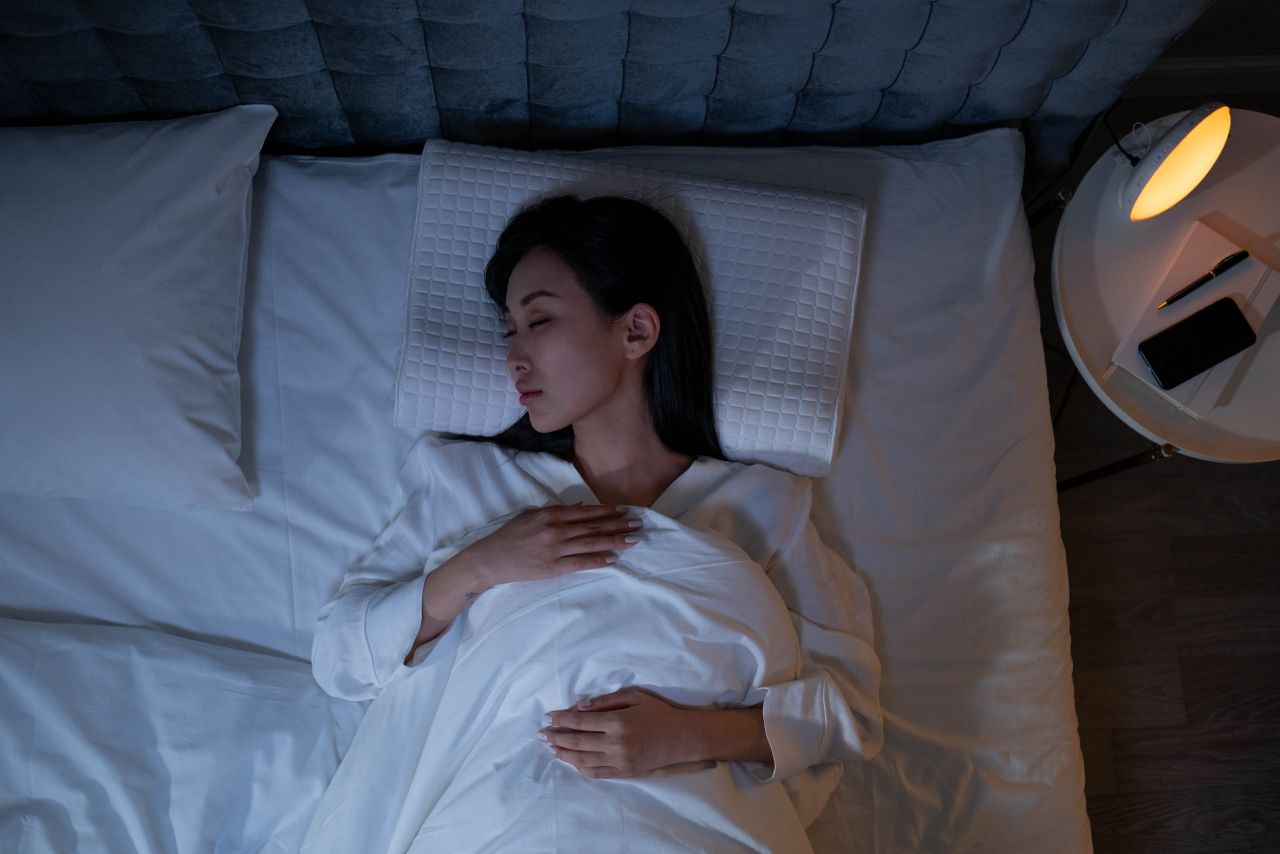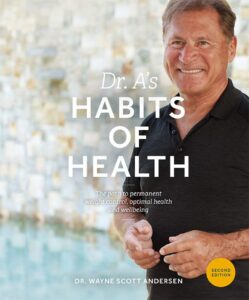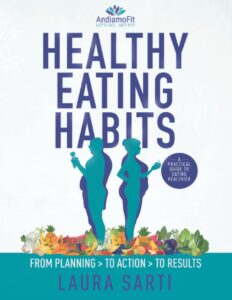I follow some tips and habits for better sleep in my fitness journey. These tips and habits help me sleep better. Many people have sleeping problems and cannot sleep properly at night. If they follow the mentioned tips properly, hopefully, there will be no sleeping problems. They can maintain a good sleeping habit.
Table of Contents
How to Get Better Sleep
Sleeping is very important to our health and well-being. It plays an important role in our healthy and happy life, yet we often neglect it in our modern lives. By following healthy sleeping habits, we can significantly improve our quality of life and lead a healthy and happy life. That’s why I’ve discussed proven tips for improving sleep quality and shared my personal journey to achieve better sleep.
Sleep Stages
To understand the importance of healthy sleeping, it is essential to know the science behind sleep. It is a complex biological process consisting of multiple stages, each with distinct physiological functions.
Non-REM Sleep:
- Stage 1: This is the lightest stage of our sleep. In this stage, you transfer from wakefulness to sleep. Normally it lasts for a few minutes.
- Stage 2: About 50% of our sleep is completed in this stage. During this time, the heart rate slows down and the body temperature decreases.
- Stage 3: It is known as deep sleep or slow-wave sleep. This stage is very important for physical restoration and recovery. In this stage, the body builds bone and muscle, repairs tissues and strengthens the immune system.
REM Sleep:
- REM (Rapid Eye Movement) Sleep: This stage involves rapid eye movements, increased brain activity, and vivid dreams. REM sleep is essential for cognitive functions such as memory consolidation and emotional regulation.
Circadian Rhythm
Our sleep-wake cycle is controlled by circadian rhythms, an internal biological clock that follows a roughly 24-hour cycle. Circadian rhythms are affected by various factors, including light exposure, which plays an important role in signaling our brain when it’s time to be awake and when it’s time to sleep.
Importance of Sleep
Enough sleep is very important for numerous aspects of health, including:
- Physical Health: Sleep supports the immune system, aids in cellular repair, and helps regulate hormones that control appetite and metabolism.
- Mental Health: Quality sleep is essential for cognitive functions such as learning, memory, problem-solving, and emotional regulation.
- Performance: Good sleep enhances productivity, creativity, and overall performance in daily activities and tasks.
Tips for Quick Sleep
- Set a Routine: Go to sleep and wake up at the same time regularly to regulate your internal clock.
- Create a Relaxing Pre-Sleep Ritual: Engage in calming activities like reading, listening to soothing music, or practicing meditation.
- Limit Screen Time: Avoid screens at least an hour before bedtime to reduce blue light exposure, which can interfere with melatonin production.
- Make a Sleep Environment: Confirm your bedroom is quiet, cool and dark. Use blackout curtains and green noise machines if necessary.
- Control Your Diet: Try to avoid heavy meals, alcohol and caffeine close to bedtime. Opt for a light snack if you’re hungry.
- Physical Activity: Try to do regular exercise, but avoid physical activity close to bedtime.
- Manage Stress: Practice stress-reduction techniques like mindfulness, deep breathing, and yoga.
Proven Tips for Healthy Sleep
Based on scientific research and personal experience, here are proven tips to cultivate healthy sleep habits:
- Maintain a Daily Sleep Schedule: Try to go to bed and wake up at the same time every day. Consistency reinforces your body’s natural sleep-wake cycle, making it easier to fall asleep and wake up.
- Create a Bedtime Routine: Make a calming pre-sleep routine that can signal to your body that it is time to wind down. Activities such as reading, taking a warm bath, or practicing relaxation exercises like deep breathing or meditation can promote relaxation.
- Optimize Your Sleep Environment: Creating a sleep-friendly environment is crucial for quality sleep. Consider the following:
- Comfortable Mattress and Pillows: Invest in a mattress and pillows that provide adequate support and comfort.
- Cool, Dark, and Quiet Room: Keep your bedroom cool, dark, and quiet. Use blackout curtains, earplugs, or green noise machines if necessary.
- Limit Exposure to Screens: The blue light emitted by phones, tablets, and computers can interfere with melatonin production. Stop screens more than an hour before bedtime.
- Be Mindful of Your Diet and Exercise:
- Try to Avoid Stimulants: Try to avoid caffeine and nicotine intake, specially in the hours leading up to bedtime.
- Eat Light: Avoid heavy meals close to bedtime. Take a light snack if you feel hungry.
- Daily Exercise: Doing regular physical activity can improve sleep quality.Try to do at least 30 minutes of moderate exercise every day.
- Stress and Anxiety: Stress and anxiety also can impact significantly on sleep quality. Implementing stress-reduction techniques such as mindfulness, meditation, and yoga can help calm the mind and prepare the body for sleep.
- Avoid Naps: Long or irregular napping during the day can negatively affect nighttime sleep. Try to avoid napping late in the day.
My Personal Experience with Sleep
Initial Struggles
For a long time, I struggled with poor sleep. I experienced difficulty falling asleep, frequent awakenings during the night, and waking up feeling unrefreshed. These sleep issues began to take a toll on my daily life, affecting my mood, productivity, and overall well-being. It also affected my body weight, which could not be reduced by dieting.
Journey to Better Sleep
Determined to improve my sleep, I began researching and experimenting with various strategies. Here is a detailed account of my journey:
- Establishing a Routine: I started by setting a consistent bedtime at 10:00 pm and wake-up time at 6:00 am, even on weekends. This simple change made a significant difference in regulating my sleep-wake cycle.
- Creating a Sleep Sanctuary: I transformed my bedroom into a sleep-friendly environment. I invested in a high-quality mattress and pillows, used blackout curtains to block out light, and introduced a green noise machine to drown out background noise. Sometimes I try to take a warm bath before sleeping.
- Mindful Evening Routine: I developed a calming bedtime routine that included reading a book, practicing deep breathing exercises, and avoiding screens at least an hour before bed.
- Diet and Exercise: I became more mindful of my diet and exercise habits. I reduced my caffeine intake after noon, avoided heavy meals before bed, and incorporated regular exercise into my routine. I found that exercising earlier in the day was more beneficial for my sleep. I try to exercise in the morning and always try to avoid exercise after noon.
- Stress Management: To address stress and anxiety, I started practicing mindfulness and meditation. These practices helped me manage my stress levels and promoted a sense of calm before bedtime.
- Limiting Naps: I adjusted my napping habits by keeping naps short and avoiding them late in the day. Sometimes I try to avoid them during the day. This change helped prevent disruptions to my nighttime sleep.
Results and Reflection
Over time, these changes significantly improved my sleep quality. I began falling asleep more easily, staying asleep throughout the night, and waking up feeling refreshed and energized. The positive impact on my mood, cognitive function, and overall well-being was profound. It helps me to lose weight and maintain a healthy and happy life.
Signs of Healthy Sleep
- Ease of Falling Asleep: You fall asleep within 15-20 minutes of going to bed.
- Staying Asleep: You sleep through the night with minimal awakenings.
- Feeling Rested: You wake up feeling refreshed and energized.
- Consistent Sleep Schedule: You maintain a regular sleep schedule without significant variation.
- Daytime Alertness: You feel alert and productive during the day without excessive drowsiness.
- Absence of Sleep Disorders: You do not experience symptoms of sleep disorders like insomnia, sleep apnea, or restless legs syndrome.
Benefits of Healthy Sleep
- Better Mood: Quality sleep helps regulate emotions and reduce irritability.
- Increased Productivity: Well-rested individuals perform better at work and in daily activities.
- Enhanced Cognitive Function: Improved memory, focus, and decision-making abilities.
- Physical Health: Supports heart health, weight management, and muscle repair.
- Reduced Risk of Chronic Conditions: Lowers the risk of conditions such as diabetes, hypertension, and obesity.
- Stronger Immune System: Better sleep strengthens the immune response.
Effects of Healthy Sleep for Longer Life
- Improved Longevity: Consistent, quality sleep is associated with a longer lifespan.
- Enhanced Physical Health: Healthy sleep supports cardiovascular health, reduces inflammation, and aids in cellular repair.
- Mental Health Benefits: Adequate sleep helps regulate mood, reduce stress, and lower the risk of mental health disorders.
- Cognitive Function: Good sleep improves memory, concentration, and problem-solving skills.
- Immune System Support: Sleep enhances immune function, making you less susceptible to illnesses.
Don’t Do for Better Sleep
- Avoid Stimulants Before Bedtime
- Caffeine: Avoid coffee, tea, chocolate, and other caffeinated products at least 6 hours before bedtime.
- Nicotine: Refrain from smoking or using nicotine products close to bedtime, as nicotine is a stimulant.
- Limit Alcohol Consumption
- Alcohol Before Bed: While alcohol may initially make you feel sleepy, it can disrupt your sleep cycle, leading to poor sleep quality.
- Moderation: If you choose to drink, do so in moderation and well before bedtime.
- Avoid Heavy Meals Late at Night
- Large Meals: Eating large, heavy meals close to bedtime can cause discomfort and indigestion, making it difficult to fall asleep.
- Spicy and Acidic Foods: These can cause heartburn and disrupt sleep.
- Don’t Engage in Vigorous Exercise Before Bed
- Intense Workouts: Avoid vigorous exercise within 2-3 hours of bedtime, as it can increase adrenaline levels and body temperature, making it harder to fall asleep.
- Opt for Gentle Activities: Light stretching or yoga can be relaxing and promote better sleep.
- Avoid Irregular Sleep Patterns
- Inconsistent Bedtimes: Going to bed and waking up at different times each day can disrupt your internal clock.
- Weekend Sleep-Ins: Avoid significant changes in your sleep schedule on weekends to maintain a consistent routine.
- Limit Screen Time Before Bed
- Electronic Devices: Avoid using phones, tablets, computers, and TVs at least an hour before bedtime.
- Blue Light Exposure: The blue light emitted from screens can interfere with melatonin production and delay sleep onset.
- Don’t Use Your Bed for Non-Sleep Activities
- Multi-Use Bed: Avoid using your bed for activities like working, eating, or watching TV.
- Sleep Association: Reserve your bed for sleep and intimacy to strengthen the mental association between bed and sleep.
- Avoid Excessive Napping
- Long Naps: Limit daytime naps to 20-30 minutes to prevent disrupting your nighttime sleep.
- Late Afternoon Naps: Avoid napping late in the afternoon or evening to ensure you are tired at bedtime.
- Don’t Ignore Sleep Problems
- Persistent Issues: If you experience ongoing sleep difficulties, don’t ignore them. Seek help from a healthcare professional.
- Self-Diagnosis: Avoid self-diagnosing or self-medicating sleep problems without consulting a professional.
- Avoid Stressful Activities Before Bed
- Work and Finances: Avoid engaging in stressful activities or discussions related to work, finances, or other concerns close to bedtime.
- Relaxation Techniques: Practice relaxation techniques such as deep breathing, meditation, or progressive muscle relaxation to wind down.
- Don’t Rely on Sleeping Pills Long-Term
- Short-Term Use: Sleeping pills should be used as a temporary solution and not relied upon long-term.
- Consult a Doctor: Always consult with a healthcare professional before using sleep aids, and explore alternative methods to improve sleep.
- Avoid Drinking Too Much Fluid
- Excessive Hydration: Drinking large amounts of fluid before bed can lead to frequent trips to the bathroom, disrupting your sleep.
- Moderate Intake: Aim to stay hydrated throughout the day and reduce fluid intake in the evening.
Common Sleep Disorders
While developing healthy sleep habits can benefit many, some individuals may struggle with sleep disorders that require medical attention. Common sleep disorders include:
- Insomnia: Falling asleep is difficult, staying asleep, or waking up early in the morning and not being able to go back to sleep.
- Sleep Apnea: A condition where breathing repeatedly stops and starts during sleep, often accompanied by loud snoring.
- Restless Legs Syndrome (RLS): An uncontrollable urge to move the legs, usually due to uncomfortable sensations.
- Narcolepsy: It is a neurological disorder that can be characterized by excessive daytime sleepiness and sudden sleep attacks.
If you suspect you have a sleep disorder, it is important to consult a healthcare professional for proper diagnosis and treatment.
Bottom Line
Maintaining healthy sleep habits is essential for physical, mental, and emotional well-being. By understanding the science of sleep and implementing proven tips, you can significantly improve your sleep quality. My personal journey towards better sleep has been transformative, and I encourage you to prioritize sleep as a vital component of your health.
Remember, achieving optimal sleep is a continuous process that may require adjustments and patience. With dedication and consistency, you can develop healthy sleep habits that enhance your overall quality of life.









Pingback: What are Good Habits | My Journey with Healthy Habits